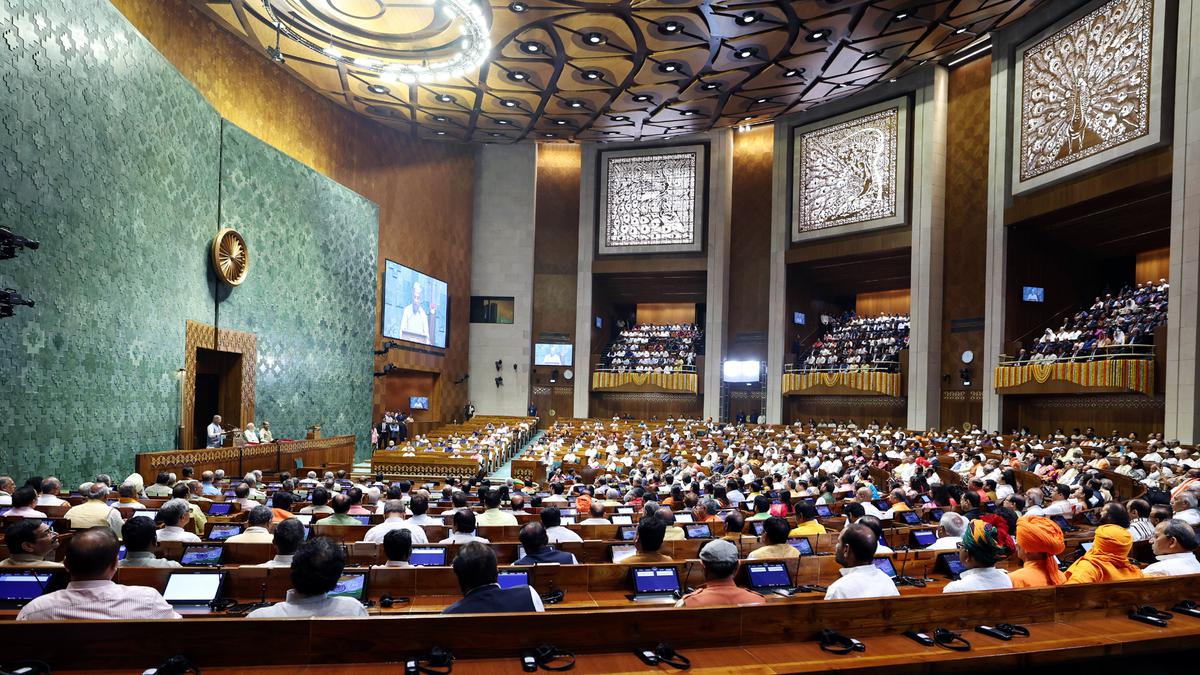As parliamentarians navigate new complexities, the emphasis remains on upholding the dignity, decorum, and effectiveness of legislative processes
 KRC TIMES Desk
KRC TIMES Desk

Vinayshil Gautam
The 18th Lok Sabha has been ushered in with customary procedural formalities on the 25th of June, 2024. Certain rituals convert the reality of Lok Sabha into the sanctified existence of a group of people meant to lead this country through such vicissitudes as it may face. This is, as it should be, an extraordinary phenomenon.
The nation can be legitimately proud of this event. Yet in certain ways, it’s different from some of the preceding Lok Sabhas because this time there was no consensus on the identification of a Speaker for the Lok Sabha.
It is not as if in each of the preceding Lok Sabhas, the selection of the speaker was unanimous. There were instances when the Speaker was chosen by ballot and the Lok Sabha still, functioned with a fair degree of cohesiveness.
The unique situation in the 18th Lok Sabha included a demand by the opposition to promise it a Deputy Speaker’s position. In the preceding Lok Sabhas, it did not seem to matter to many people. An assurance here and ‘now ‘seemed to be the demand.
The matter seems to have would have been settled. The crux of the situation seems to be putting up the Deputy Speaker’s position as a factor in negotiation. In the preceding Lok Sabhas, a consensus was built around these issues, which this time around did not seem to bother many people. This is a settled and yet important proposition about the style of conduct of affairs.
An illustration may help to establish the point with better clarity. In one of the preceding Lok Sabhas, at a time when Jawahar Lal Nehru dominated the scene in Indian politics, there was a bye-election schedule from Muzaffarpur Constituency in Bihar. Then socialist parties sought to put up Acharya Narendra Dev as their candidate for election from this constituency. Jawahar Lal Nehru, who was one of the tallest figures in the political scene, seized this situation to make a point.
He felt that even if Acharya Narendra Dev was a candidate for the opposition, yet there was no bitterness that Congress as a party had towards him. Ordinarily, Congress was expected to win this election of the parliamentary seat to the Lok Sabha, yet Jawahar Lal Nehru felt that the Lok Sabha should have more different types of people, and therefore Congress would not contest for the Lok Sabha seat from Muzaffarpur against Narendra Dev.
Those times were different. There was a predominantly universal sentiment for merit and goodwill, and Narendra Dev sailed home well on that argument. As stated, with the main opposition and Congress working together for Narendra Dev, it was not difficult for him to get elected to the Lok Sabha.
Those times were different, and those times still resonate with many people as to what good traditions in the parliamentary system are all about.It’s remarkable that during the arguments for Deputy Speakership, no one in public even recalled this episode from the perspective of parliamentary history.
It is indeed a case for a two-tiered split on which way the parliamentary traditions could be heading. One can only hope that over time, the good sense and goodwill of parliamentarians will prevail and matters take their course in a more enlightened way.Be that as it may, one is not quite sure what the adamancy of a prior commitment about the Deputy Speaker’s position being given to the opposition has been all about.
In any case, the convention has been for the Deputy Speaker’s position to be given to the opposition, so ultimately, the contention was only about the timing of the formalization of this kind of prior agreement. It is indeed a small matter, but if the loftiness of parliamentary traditions were to be seen in its due weightage in the conduct of affairs, it is important.
Running a parliament cannot and should not be solely about positions, it has also to be about patterns, graces, decency, and above all, dignified conduct in electoral and consensual politics. The people show their class through their representatives, behaviours, and the way arguments are made or not made.
This becomes the algorithm for the conduct of public affairs. Every parliament loses at least 20 to 40% of its members who fail to return for various reasons or who may only serve for one term. Therefore, being a member of parliament, especially the Lok Sabha, carries a huge moral weight that goes beyond simple political votes.
Parliamentary traditions are important, and it may well be that the 18th Lok Sabha will have some daring challenges to its method of work, to which both the ruling party and the opposition, led by some old veterans, will need to adapt and take responsibility.
This is a simplified version of what happens, as the method of working is nearly as critical as the methods of resolving differences.All said and done, even parliament has to operate within the bandwidth of rules, regulations, bylaws, practices, and more.
It is best done through goodwill and grace. Senior members in the Lok Sabha need to conduct affairs with statesmanship and dignity. The Prime Minister has done well to emphasize that for a nation to work well, all must work together, not just the majority.
(The writer is a well-known management consultant of international repute. The views expressed are personal)



